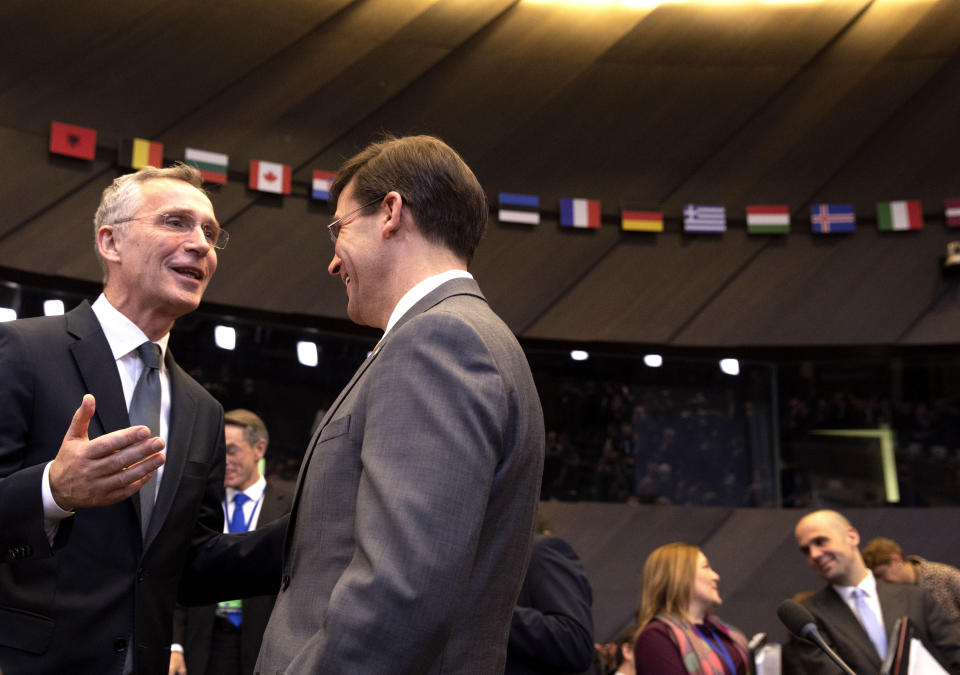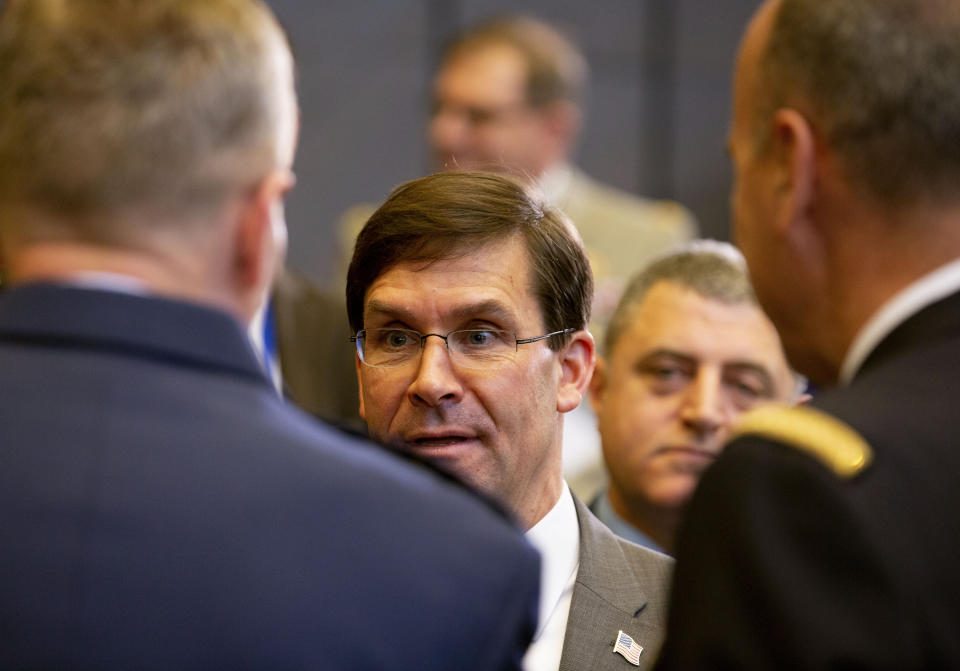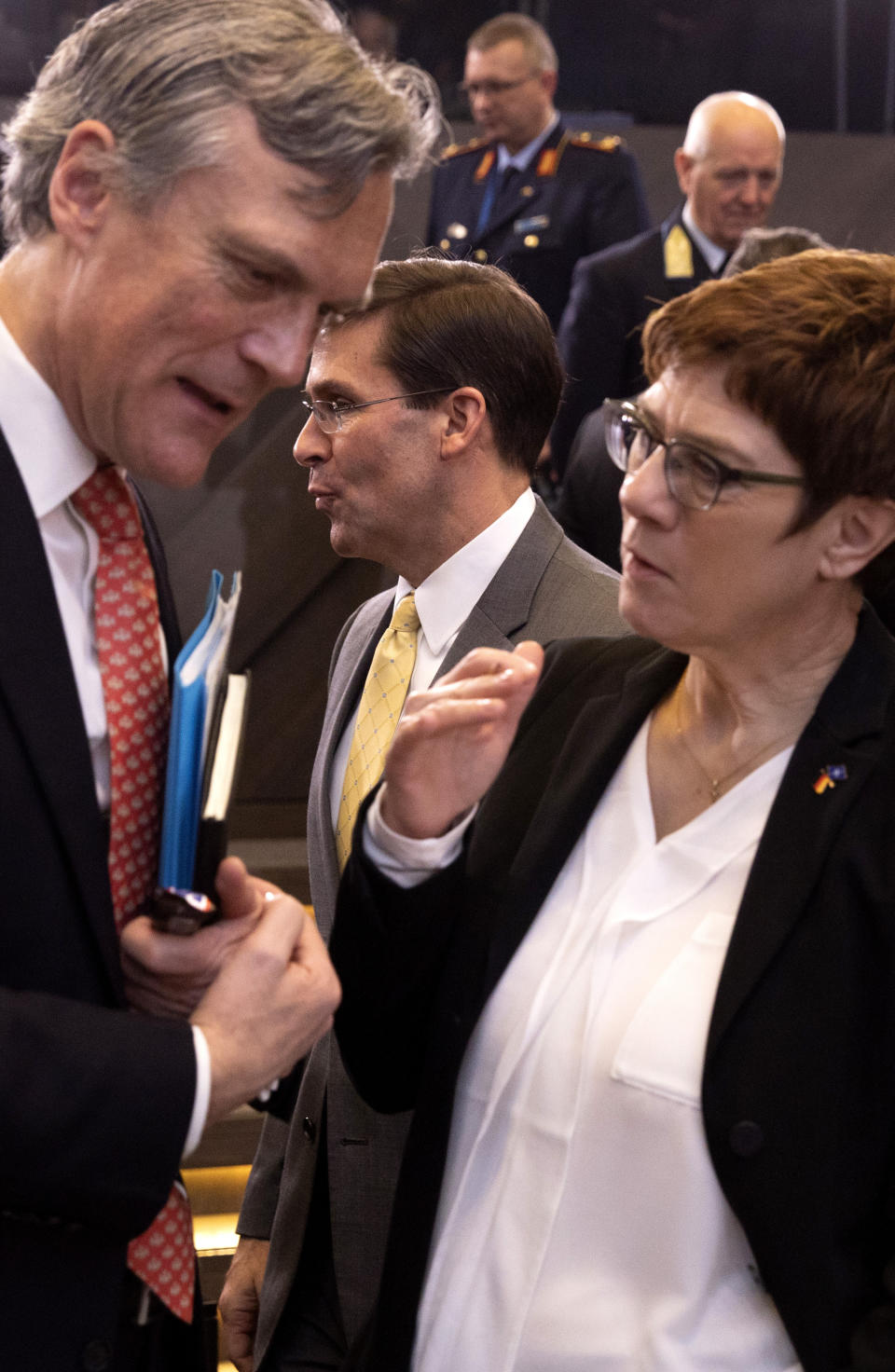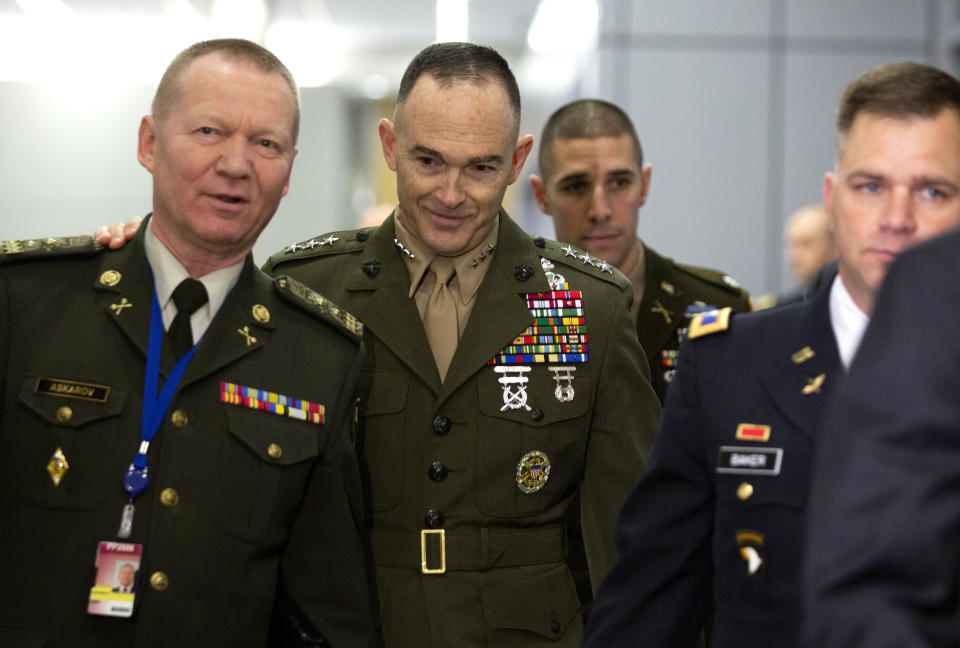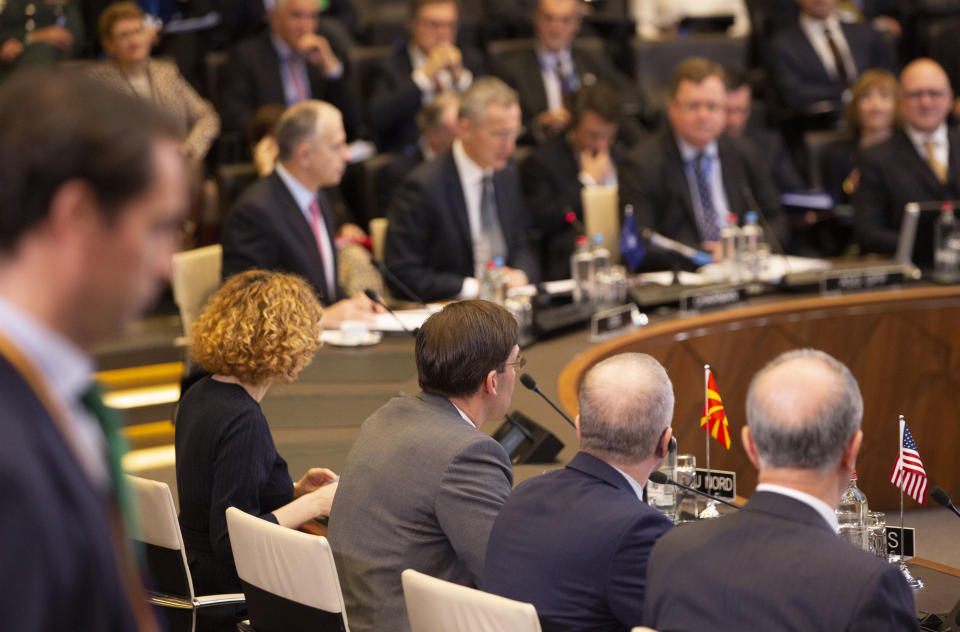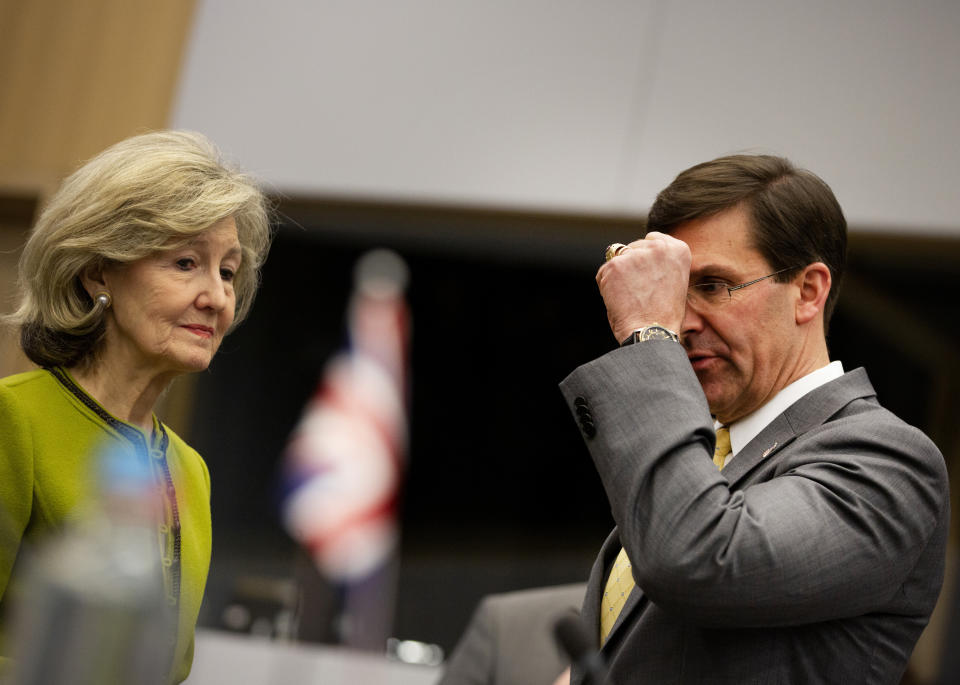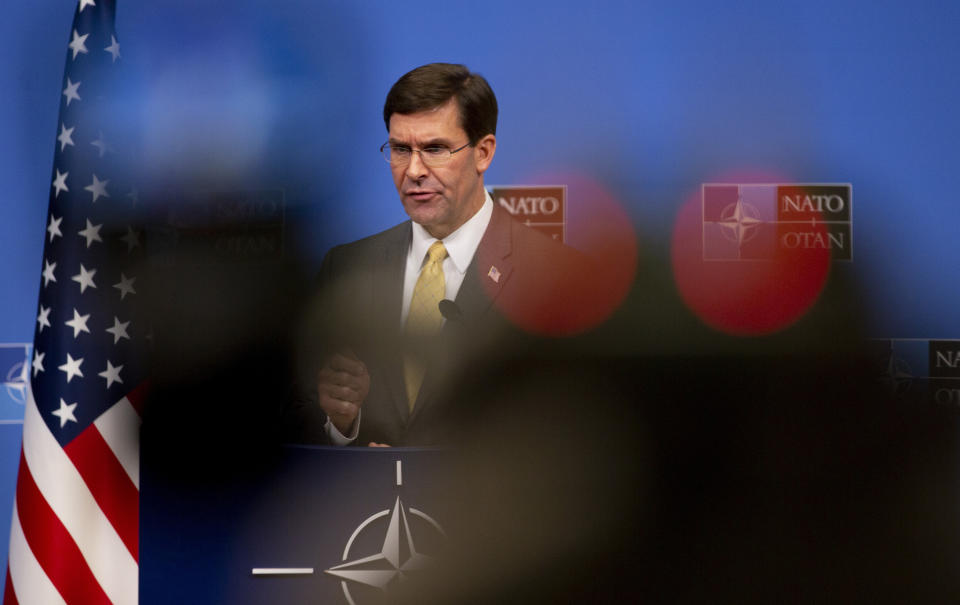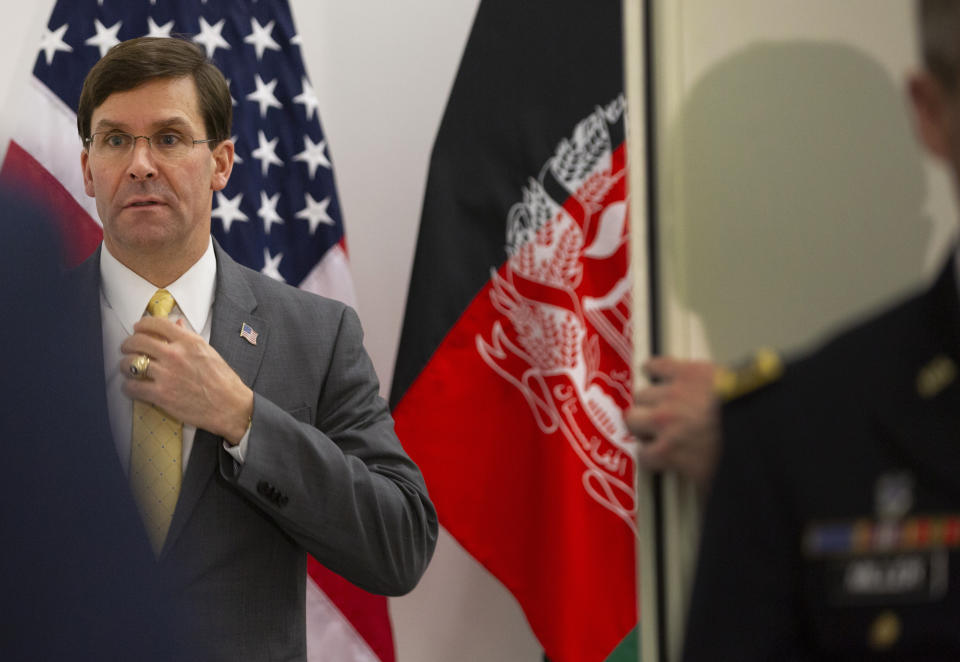Iraq green-lights resumption of NATO training effort
BRUSSELS (AP) — The Iraqi government has given NATO the green light to stay in the country, the alliance's chief said Thursday, weeks after Iraq demanded foreign forces leave the country over the U.S. killing of Iran’s top general near the Baghdad airport.
Prodded by U.S. President Donald Trump to do more in the wider Middle East, NATO has been developing plans to expand its training effort in Iraq, where it was helping build up the Iraqi army and provide security advice to government ministries until it was suspended over the drone strike.
“The government of Iraq has confirmed to us their desire for a continuation of the NATO training, advising and capacity building activities for the Iraqi armed forces,” Secretary-General Jens Stoltenberg told reporters in Brussels during a meeting of allied defense ministers.
“We will only stay in Iraq as long as we are welcome,” he added.
NATO’s Canada-led training mission was launched in 2018 and involves around 500 troops. The plan now is to move hundreds of trainers working with the international force fighting the Islamic State group in Iraq over to that mission.
Unlike the international coalition, NATO’s training effort does not involve combat operations.
The move was not expected to involve the deployment of more troops. But when asked if he had received pledges from other NATO allies to do more so the U.S. could reduce its personnel in Iraq, Defense Secretary Mark Esper said “the short answer is yes.” He declined to provide details.
Stoltenberg also provided no details about how many troops might be added to the training force or what new activities they might eventually undertake. More details could be made public after he meets top officials in the anti-IS coalition in Munich, Germany on Friday.
Officials have said “a couple of hundred” troops would change roles. The first step would be to expand the training at three bases in central Iraq. A second step, possibly over the summer, would see the mission’s mandate changed to take over more activities currently handled by the coalition.
Esper said the ministers have “asked NATO’s military leaders to consider what more the alliance could do to assist the Iraqi security forces."
The move is basically a re-branding exercise meant to satisfy Trump's demand that NATO do more in the Middle East.
Despite Trump’s insistence that NATO step up, there is little appetite among European allies and Canada to deploy additional troops to the potentially volatile region — beyond the Iraq training effort — even though the United States is by far the biggest and most influential of the 29 NATO member countries.
Some members believe the U.S. attack in Baghdad last month, which angered Iran and drew retaliatory missile strikes on a U.S. base in Iraq, has complicated the fight against the Islamic State group. They are unwilling to put more troops in harm’s way just to help Trump extricate himself from a problem of his own making.
But Esper said he welcomed “follow-on discussions on how to broaden NATO’s role in the Middle East to defend the international rules-based order, to include deploying air defenses and other capabilities that would deter aggression and reassure partners.” Again, no details were provided.
